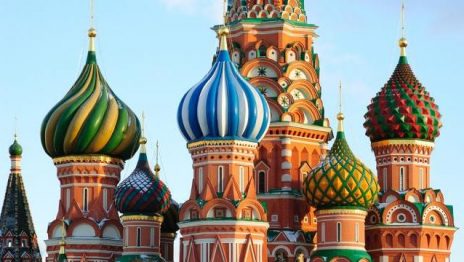Update on Russia
What has happened?
In 2014, as the military conflict in Ukraine escalated, the EU and the US (and various other nations) imposed a series of economic sanctions on Russian individuals and entities. From an equity investor’s point of view, the key components of the sanctions were a ban on buying and issuance of new equity for four large listed Russian companies: energy firms Rosneft and Novatek and banks Sberbank and VTB Bank. The securities of all four remained tradeable, as long as they did not issue new equity, which they have not done. There was also a ban on the provision of technology, equipment or assistance by Western firms to Russian offshore, deepwater or shale energy projects.
With further concern about the actions of the Russian government and/or entities connected to Russia’s Government, on 6 April 2018 the US Treasury department announced a new suite of measures, which has had a significant effect in Russian capital markets.
A series of Russian private citizens and government officials (including, importantly, Oleg Deripaska), and firms connected to those individuals, have been designated for sanctions. Crucially, these specifically bar the trading in securities of designated companies as well as limiting those companies’ access to the US dollar payments system. The listed companies designated were mostly unlisted, but did include Rusal (primary listing in Hong Kong) and EN+ (listed in Moscow, London and Paris in depository receipt form).
This had two immediate effects: the two main clearing houses for security transactions moved to immediately limit trades in the securities of Rusal and EN+ (Clearstream has said it will not process trades at all, and Euroclear will only process sales). Additionally, Rusal warned of potential credit defaults and asked its customers to suspend payments while it finds a way to be paid without breaching sanctions.
Market impact
The initial impact of this latest round of sanctions was severe. Perhaps with the US$8.9 billion fine levied on BNP Paribas for breaching sanctions on Iran in mind, there was a broad sell-off in Russian assets, and a very severe sell-off in the shares of the most affected companies, Rusal and EN+.
Rusal and EN+ fell over 50% in US dollar terms, with broad declines in other large cap stocks. The large energy names fell around 10%, Norilsk Nickel fell 18.7% and Sberbank fell 21.6%. Overall, the MSCI Russia US$ Index fell 12.4%, driven partly by a 4.2% fall in the Russian rouble to 62 to the dollar, while Russian sovereign CDS (5-year US$) moved from 120 to 140 (and subsequently widened further). Clearly, these are very substantial moves, and far greater than seen with previous rounds of sanctions.
Top-down implications
Whilst the stock-specific implications could be disastrous for the designated companies, the overall economic effect is likely to be more limited. As an exporter of US$-priced commodities, Russia is vulnerable to disruptions to its use of the US dollar payments system, but elsewhere Russia has considerable strengths. Crucially, Russian exports are commodities and essentially fungible. Barring world-wide sanctions, Russia can supply energy and bulk commodities to other parts of the world (crucially China) and be paid in an alternative currency (probably Chinese renminbi). Furthermore, Western and Central Europe depend on Russia for natural gas, with Gazprom representing a 40% share of supply in 2017.
Additionally, Russia runs a current account surplus (forecast at 3.0% of GDP in 2018) and a very limited fiscal deficit (forecast at 0.3% of GDP in 2018), thereby reducing vulnerability to reduced exports or financing.
The last year has also seen a steady rise in the oil price, which is ultimately the key driver of the Russian economy. With Brent crude currently trading at over US$70 per barrel, the Russian economy will continue to strengthen. A comparison of the oil price with the rouble, or with Russian sovereign CDS, shows the anomaly of the last week’s market moves.
That anomaly represents increased political risk, especially both the wider and more severe nature of the latest sanctions, the risk of Russian retaliation, and the consequent potential for even harsher sanctions. Markets are discounting the world’s cheapest equity market even further in a classic fear-driven, risk off move.
For comparison, the 2015 peak in CDS was 628 and the 2016 low in the rouble was 82.45 to the US dollar. Underpinned by a strong oil price, it is hard to see current risks in Russian equities as comparable with those that existed when the oil price traded below US$45 per barrel.
Portfolio changes
At the start of the month, our portfolio held four Russian stocks: larger positions in Sberbank and miner Norilsk Nickel, and smaller positions in retailers Lenta and Magnit. We have sold our entire position in Norilsk Nickel. The company has a superb operating asset, with large by-product credits giving an effective negative cash cost of production for nickel, while nickel prices remain over US$13,000 per tonne. The stock has fallen to 8x consensus 12-month forward earnings, and could potentially have a 10% dividend yield in the next year. However, Norilsk’s largest shareholder is Rusal, with a 27.8% stake. Rusal has been sanctioned along with its parent EN+ and Oleg Deripaska, EN+’s controlling shareholder. Norilsk Nickel has not been designated as the US Treasury applies a 50% control rule and Rusal owns less than 50% of Norilsk. However, there is a very clear risk that a further round of sanctions could result in Norilsk being designated. This risk is further increased as Oleg Deripaska has recently been nominated to Norilsk’s Board of directors. We consider this stock-specific risk to be unsuitable for our strategy, especially given the attractive valuations available elsewhere in the Russian equity market.
We have increased our position in Sberbank to around 3.0% of the portfolio. Sberbank is a parastatal, with a control stake owned by the Central Bank of Russia; Sberbank’s bonds trade approximately in-line with the sovereign. Sberbank has had strong operational performance in 2017, with a 38% year-on-year increase in net earnings, balance sheet growth with good cost control and some impressive developments in using technology to service both retail and corporate customers. 2017 return on equity was 23.8%, the balance sheet is strong with a Tier 1 capital ratio of 11.4% and a trailing non-performing loan ratio of 1.8% (and a loan loss reserve multiples of the non-performing loans). As such, the decline to a trailing price/book ratio of 1.3x and a 12-month forward price/earnings ratio of 5.2x seems excessive given where the oil price and Russian CDS are (and given the parastatal status of Sberbank). Sberbank is one of our highest conviction stock ideas and we have invested accordingly.
In the mid-cap space, we have maintained our positions in the retailers, and also added a position in a high quality industrial name, GlobalTrans. GlobalTrans is the leading rail freight transport company in Russia, specialising in bulk transport of commodities. GlobalTrans’ controlling shareholder, Konstantin Nikolaev, has not been designated for sanctions. Recent results have been very strong, as the company’s investments in both its fleet and its logistics capabilities have come through – the industry is one with very strong network effects, as minimising the proportion of empty runs is the key operational edge. H2 2017 earnings (EBITDA) growth was 35% year-on-year, with a 51.4% EBITDA margin and a 20% return on invested capital.
One of the reasons we are very positive on GlobalTrans is the management’s excellent capital discipline. Having invested in the fleet, strong free cash flow is being returned to shareholders, with special dividends bringing the trailing dividend yield to 6.5%, and there is a commitment to maintain the dividend policy unless attractive acquisitions become available. The company’s recent investments in its own locomotive fleet for rail tank traffic has been paying off, and we find the combination of a highly profitable business with excellent capital management, good growth prospects and a 12-month forward price/earnings ratio of less than 10x very attractive.
Political risks have undoubtedly increased in Russia in recent weeks, but a strong oil price is a very substantial offset, as is the strong current account and fiscal position. Where valuations are attractive, we will look for opportunities. We always prioritise stock-specific ownership and corporate governance matters in our bottom-up research process, as demonstrated by our sale of Norilsk Nickel and investments in Sberbank and GlobalTrans.

This article has been prepared by Pendal Fund Services Limited (PFSL) ABN 13 161 249 332, AFSL No 431426 and the information contained within is current as at April 20, 2018. It is not to be published, or otherwise made available to any person other than the party to whom it is provided.
PFSL is the responsible entity and issuer of units in the Pendal Global Emerging Markets Opportunities Fund (Fund) ARSN: 159 605 811. A product disclosure statement (PDS) is available for the Fund and can be obtained by calling 1800 813 886 or visiting www.pendalgroup.com. You should obtain and consider the PDS before deciding whether to acquire, continue to hold or dispose of units in the Fund. An investment in the Fund is subject to investment risk, including possible delays in repayment of withdrawal proceeds and loss of income and principal invested.
This article is for general information purposes only, should not be considered as a comprehensive statement on any matter and should not be relied upon as such. It has been prepared without taking into account any recipient’s personal objectives, financial situation or needs. Because of this, recipients should, before acting on this information, consider its appropriateness having regard to their individual objectives, financial situation and needs. This information is not to be regarded as a securities recommendation.
The information in this article may contain material provided by third parties, is given in good faith and has been derived from sources believed to be accurate as at its issue date. While such material is published with necessary permission, and while all reasonable care has been taken to ensure that the information in this article is complete and correct, to the maximum extent permitted by law neither PFSL nor any company in the Pendal group accepts any responsibility or liability for the accuracy or completeness of this information.
Any projections contained in this article are predictive and should not be relied upon when making an investment decision or recommendation. While we have used every effort to ensure that the assumptions on which the projections are based are reasonable, the projections may be based on incorrect assumptions or may not take into account known or unknown risks and uncertainties. The actual results may differ materially from these projections.



